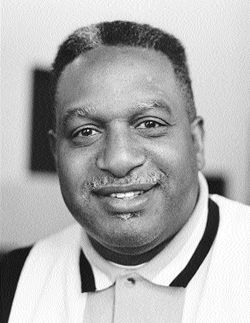Related Articles Case
Management versus Therapy
|
May 2001
In the traditional mental health model a doctor or therapist diagnoses a patient and prescribes treatment. Berkeley Mental Health workers use a more collaborative approach. ACT staff member James Glenn explains: “I come from a position of empowerment and
choice. Traditionally society has stigmatized people who are mentally
challenged and denied them a voice in their treatment. We let them know
that they are whole and complete and that their diagnosis is not a prognosis.
They can enrich the quality of their life through therapy, medication
and developing a holistic approach to life. Medication without therapy
or goals is insufficient. You have to give them a life. They need to see
the rewards and benefits so they can make decisions themselves. “We have had some very profound successes. For example, we had an individual who had been homeless for seven years, in and out of the criminal justice system. Between criminal justice and hospitalization the society was probably spending $200,000 per year. Since we began working with him last August he hasn’t been in the hospital or the jail. So we are saving the taxpayers of California and Alameda County nearly $200,000.”
|
||||

 James
Glenn
James
Glenn